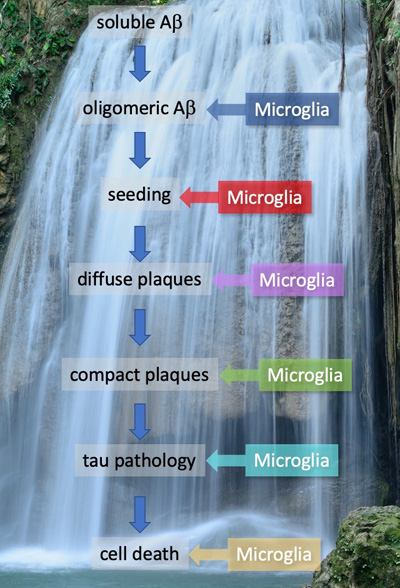If amyloid drives Alzheimer disease, why have anti-amyloid therapies not yet slowed cognitive decline?
PLoS Biol. 2022 Jul 21;20(7):e3001694.
| Authors/Editors: |
Haass C Selkoe D |
|---|---|
| Publication Date: | 2022 |
| Type of Publication: | Review |
Abstract
Strong genetic evidence supports an imbalance between production and clearance of amyloid β-protein in people with Alzheimer disease. Microglia that are potentially involved in alternative mechanisms are actually integral to the amyloid cascade. Fluid biomarkers and brain imaging place accumulation of amyloid-b-protein at the beginning of molecular and clinical changes in the disease. So why have clinical trials of anti-amyloid therapies not provided clear-cut benefits to Alzheimer patients? Can anti-amyloid therapies robustly decrease amyloid b-protein in the human brain, and if so, could this lowering be too little, too late? These central questions in research on Alzheimer disease are being urgently addressed.

Haass C, Selkoe D, 2022, PLOS Biology, CC-BY 4.0
(https://creativecommons.org/licenses/by/4.0/)



